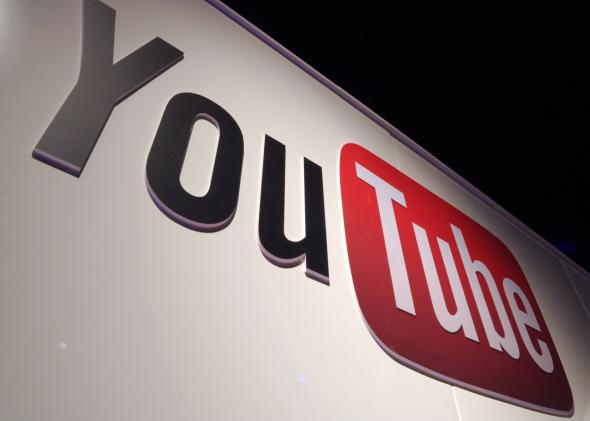At this point, we’re all used to watching Amazon go to the mat with publishers over book prices. Is it Thursday? Oh, then Amazon must be yanking somebody’s titles from its site to wring a wholesale discount out of the publisher. Such are the vicissitudes of e-commerce.
Anyway, it now seems like another big tech company has been taking courses at the Jeff Bezos school of contract negotiations. At the moment, Google-owned YouTube is threatening to pull down music videos by artists on independent (i.e., non–Big Three) record labels that have refused to sign on to its upcoming subscription streaming service. Major acts such as Adele, Radiohead, Jack White, and Vampire Weekend could all disappear from the site “in a matter of days,” according to YouTube exec Robert Kyncl.
The indies say they are holding out because YouTube has offered them far worse licensing deals than it’s offered the major labels (though they’re light on details). This, they claim, is a departure from the standards set by companies like Spotify and Rdio, which treat them on the same terms as Universal, Sony, and Warner. According to Billboard, meanwhile, YouTube executives “argue that they cannot offer music on the free service without it also being available on the paid service as this would disappoint its subscribers. The solution? To take down songs that can’t be available on both services.” (If this sounds to you like a tenuous excuse for simply driving a hard bargain, join the club.)
Absent an unlikely intervention by antitrust regulators, this protest appears to be a lose-lose situation for the labels. If they give in, they’ll set a horrible precedent for future negotiations with streaming services over the use of their music. If they hold out and get kicked off YouTube entirely, then they’ll be banished from one of the single most popular (and sometimes quite profitable) music platforms on the globe.
At the same time, Google could also end up bruised. Streaming is quickly taking over the music industry (see: Apple’s purchase of Beats). But the company’s current subscription service, Google Play Music All Access, is an also-ran (possibly because its name is atrocious). There are rumors that the search giant might just up and buy Spotify. If not, however, leveraging Youtube is by far its best option. After all, half the world already uses it as a jukebox anyway. If the independents don’t cry uncle, Google will be entering an already crowded field with a demonstrably worse product. YouTube says it has “90 percent” of the music industry on board already. But the idea of asking the sorts of listeners who are actually willing to pay for music to shell out for a library that doesn’t include megastars like Radiohead or Adele (not to mention some beloved smaller acts) seems a bit embarrassing, frankly. (An important detail here: Some artists, like Adele, are signed to an independent label in Europe, but are distributed in the U.S. by a major, which could mean their music is available in some countries but not others.)
Given the strong incentives on all sides here, the parties might just reach a compromise. Or, it could mean everyone leaves a bit poorer.
Which brings us to the question of how these negotiations reached this point in the first place. One straightforward theory is that Google is a gigantic tech company and that—having watched Amazon go through this process time and again without alienating customers—it feels free to play hardball (which is, by the way, completely within its rights, if not completely in keeping with its slightly outdated corporate motto).
But Rich Bengloff, president of the American Association of Independent Music (an indie trade group), has another interesting theory, which I haven’t seen reported much. Earlier this month, he wrote a letter to the Federal Trade Commission asking for an injunction preventing YouTube from removing artists’ videos. In it, however, he didn’t lay all of the blame for this impasse on Google. Instead, he blamed the government’s limp approach to antitrust.
Thanks to the merger of Universal and EMI, the world now has just three major record labels that wield outsize negotiating power. This is particularly problematic when it comes to streaming services. That’s because services like Spotify don’t actually pay companies per play. Instead, they take a certain percentage of their total revenue, and divvy it up proportionally among the copyright holders. Thanks to their sheer size, the majors are now able to demand a larger share of that pie, leaving the indies and YouTube to squabble over leftovers that aren’t enough to satisfy either party.
It’s possible that Bengloff is just straining to connect this controversy to a pet issue, and YouTube would be negotiating à la Bezos regardless. Still, it may well be the case that YouTube is about to get crappier, in part, thanks to the magic of industry consolidation.
